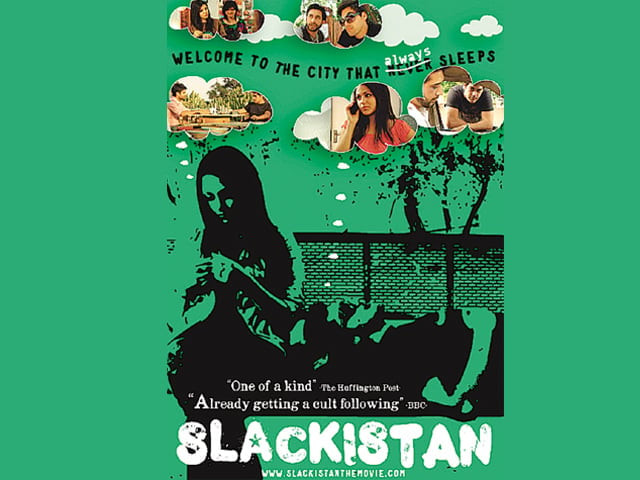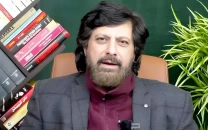Slackistan: Forbidden
Film may have received international acclaim but faces censor board ban at home.

A very disappointed cast and crew share their views regarding the ban. “This objection honestly reinforces the feeling of being voiceless that seems to be lingering in the country these days. We really are stripped of our basic right to express ourselves,” Shahana Khalil responds bitterly. “I also find it highly hypocritical for our cinemas to be allowed to show both Hollywood and Bollywood films that depict everything and a lot more are never banned by the censor board,” added Khalil.
The nature of the ban has raised some eyebrows, being banned on the usage of the terms like, ‘lesbian’, ‘Taliban’ and scenes depicting the sharing of alcohol. These are details in a film and are inconsequential to the message it is trying to project. It almost seems as if the censor board is trying to amputate a part of the Pakistani society. If Pakistani films are not about the poor or related to misery and oppression it is said, “This is not the real Pakistan.”
“We haven’t developed the ability to scrutinize ourselves. We point fingers at others rather than correcting ourselves. We don’t laugh at ourselves. This limits our film industry and young film makers that will never get through to the right channels,” says Shahbaz Shigri, a fellow cast member. It is time to realize that this modernized depiction of Pakistani society around the globe and was appreciated.
If Cannes, Abu Dhabi, Dubai, Goa, New York, London and Washington DC can accept Slackistan it is a shame that our own country refuses to. Abu Dhabi and Dubai represent the United Arab Emirates, meaning that if the Muslim world can accept it for the film for its creativity and truthful nature; what is exactly is the Pakistan Censor Board trying to hide?
“Apart from being an undemocratic restriction on the filmmaker’s right of expression, the verdict shows the disdain with which the authorities regard local film culture and liberal ideas, in the face of growing extremism and intolerance,” retaliated Hammad Khan, Creator and Director of Slackistan. “Maybe the establishment’s view is that young Pakistanis saying words like ‘Taliban’ and ‘lesbian’ represent a more potent threat than the bullets and bombs that are, day by day, finding increasing legitimacy in the country,” added Khan.
The irony of the entire situation is that we are a country of film watchers thriving on piracy. In such an environment does it even make sense to ban a film?
The moment anyone lays hands on a copy of it, the film will be replicated and copies will infiltrate the market. Ali Rehman, another cast member, feels that the word will get out regarding the credibility of the film. “Apart from money making and the loss to the filmmaker, people will see it. Even if a pirated version is available people will watch it. In Pakistan we have other channels to get it out,” said Rehman.
Osman Khalid Butt replies unperturbed and rather humorously, “In essence, what did a ban really achieve? I mean it’s destined for cult status now -- it’s like this: you banned it, now everyone’s going to watch it. Sunny side up, it is kind of ridiculously cool to be part of a film that was banned. Feel like I’m part of some Erin-Brockovich of the cinema style revolution.”
Even though the cast is appalled by the diminishing freedom of expression and narrow thought being exercised by the censor board, they are not surprised that the film got banned. More so, it is human nature to seek out that which is not allowed...Forbidden.
Published in The Express Tribune, January 27th, 2011.



















COMMENTS
Comments are moderated and generally will be posted if they are on-topic and not abusive.
For more information, please see our Comments FAQ